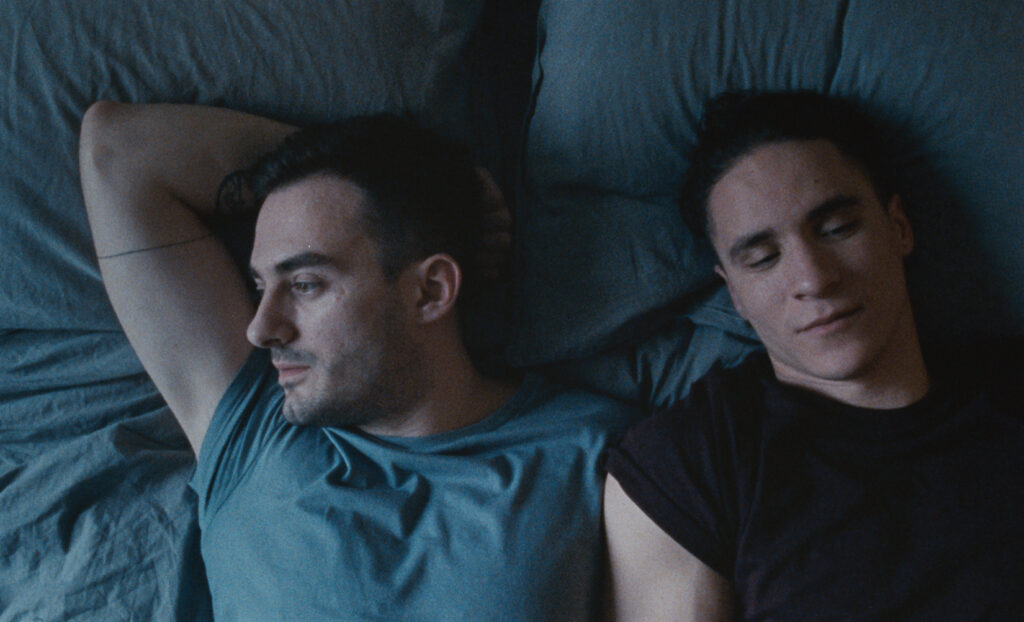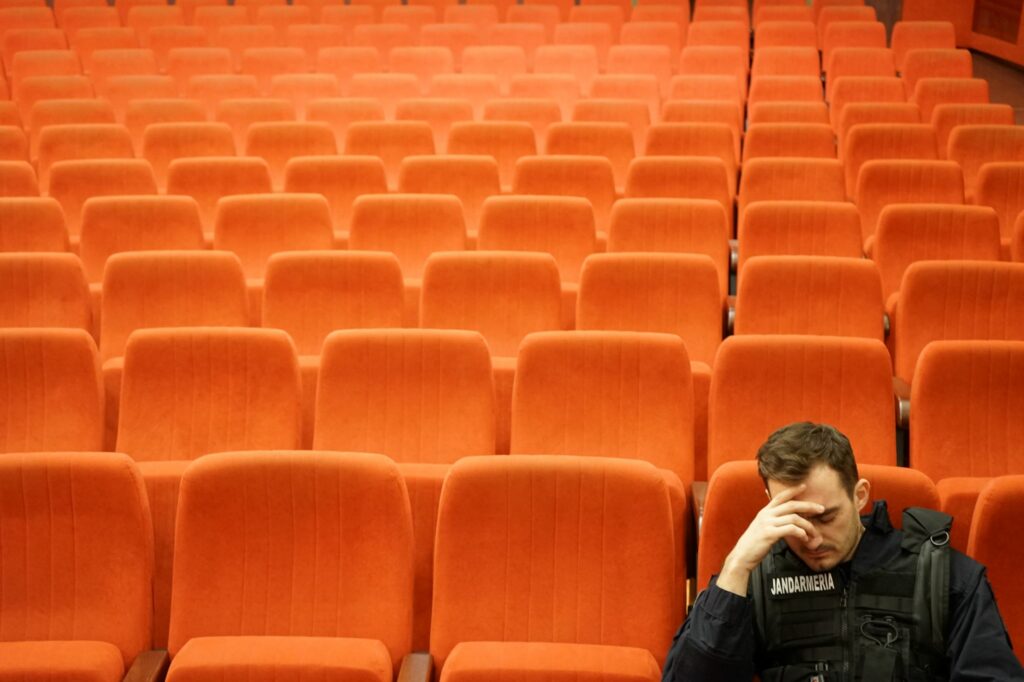Romania is a country where, although much progress has been made with LGBT+ rights, it remains a controversial and emotive topic for many of its citizens. The ways that sexual and national identities conflict with and inform one another is at the forefront of Poppy Field (Câmp de maci), a short but impactful drama based on a real-life story. Eugen Jebeleanu’s film captures the experience of an individual torn between facets of himself, forced to hide much of himself from colleagues and the public at large. It makes for a fascinating, if at times uneven, character study.

Cristi (Conrad Mericoffer) is a gay man who also works as a member of the Gendarmerie, the Romanian military police. His lover Hadi (Radouan Leflahi) is visiting from Paris, but their time together is interrupted by Cristi’s work, which sees him travel to a state-run cinema to quell dissent aimed at a gay film festival. Confronted by colleagues for his behaviour, and by a former lover who threatens to expose his sexuality to the rest of the force, Cristi’s actions and demeanour turn increasingly unstable.
The early parts of Poppy Field capture Cristi and Tadi’s relationship with remarkable passion and naturalism. The tenderness of their relationship makes it somewhat of a shame that more time is not spent exploring their life together (Tadi is not seen again after the film’s opening scenes). Instead, the focus swiftly changes to Cristi’s work life, though the shift is very deliberately jarring. Once he’s in uniform, Cristi’s life seems more miserable, colder, and more brutal. Jebeleanu gives the unmistakable impression that Cristi has somehow entered another world, one that slowly eats away at him from the inside.
Cristi’s grappling with the pressures of his work life and increasingly frantic efforts to conceal his sexuality see him degenerate into actions that he quickly regrets. This ranges from partaking in vulgar but relatively harmless heteronormative ‘guy talk’, to throwing around distressing homophobic slurs. The complexity and obvious conflict rising within Cristi not only humanises the story, but makes it increasingly tense and unpredictable.

Jebeleanu and cinematographer Marius Panduru capture the scenes of protest with single, drawn-out camera shots; how effective they are in throwing the audience into this crucible of competing views and prejudices is startling. The heated discussions cover everything from religion to concerns about Romanian identity, debates that can feel universal yet here are very clearly grounded in specific national ideologies. It is a valuable, well-executed insight into a country where LGBT+ cinema remains uncommon.
Poppy Field’s main downfall is that it is, put simply, too short. There are many stones left unturned that could have added depth to this story, had there been the time to explore them. Instead, Cristi’s enigmatic character proves to be more infuriating than magnetic. Some scenes also see the urgency that powers the film throughout, drop too noticeably – one extended exchange in particular feels surplus to requirements, which would not have been the case with a longer runtime.
One brief shot, however, seems to sum up the film perfectly. Cristi stands alone on a stage in the movie theatre, with nobody in the audience. He is on full display, yet there is nobody there to see him. Nobody who has any idea about who he really is, instead seeing only the uniform. Despite its shortcomings, this central conflict and its deeply personalised perspective give Poppy Field enough significance and focus to border on essential viewing.
Poppy Field screened as part of the BFI Flare LGBTIQ+ Film Festival.
